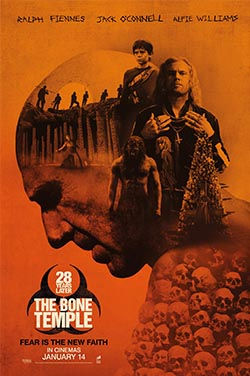Roma Movie Review
- Rob Cain

- Jan 12, 2019
- 3 min read

Released: 21st November 2018 (Netflix)
Length: 135 Minutes
Certificate: 15
Director: Alfonso Cuarón
Starring: Yalitza Aparicio, Marina de Tavira, Fernando Grediaga, Jorge Antonio Guerrero, Marco Graf, Daniela Demesa, Diego Cortina Autrey, Carlos Peralta and Nancy Garcia
After a five-year gap, renowned director Alfonso Cuarón has returned to filmmaking with a highly personal production that aims to share his own life with movie-goers.

Taking place in 1970s Mexico, Roma follows a servant named Cleo (Yalitza Aparicio), who works for a middle-class family in the capital city. We follow them closely as they go through life and all its ups and downs; it’s a simple story, told across a variety of settings that aims to be as realistic as possible. The day-to-day lives of the characters are placed front and centre, the historical context around them brilliantly juxtaposed as the film seamlessly transitions from one scene to the next, never taking the focus away from them. On occasion, the film will change gears; be it a change of setting or the entrance of an unexpected event. This tests Cleo and the family, and the final act features many warm and sincere moments of bonding. Of course, what makes it all work is how Roma makes us care for the characters.

Cleo and the family are immensely close to each other and every cast member does a fantastic job of conveying this. A sense of innocence is evident on every child in the family and the close bond they share with Cleo is particularly heartfelt. By contrast, you have the parents Sofia (Marina De Tevira) and Antonio (Fernando Grendiaga), both of whom share a dramatic tension vividly portrayed through emotions of stress and frustration. Cleo herself is a very rich character, burdened by guilt, the pressures of her job and the prospect of becoming a mother through much of the narrative; it’s incredibly impressive that Yalitza Aparicio pulls off all these nuances despite not having any previous acting experience. Above all else, the emotions on display all feel strikingly real which heightens the believability of the characters and the situations they find themselves in.

Being based on Cuarón own experiences growing up in Mexico City (The family house sits opposite the director’s former home), the camerawork in Roma is incredibly intimate; it acts as an observer, often placed behind objects or in the background. Panning slowly back and forth to show every character, we absorb every detail, feeling as if we’re in the scene, anonymously watching the characters. Then you have some stunning wide shots of the landscape, giving way to some detailed locales; throughout the film, background music is kept to a minimum, allowing natural sounds to pull the viewer in. The black and white photography only adds to the film’s beauty, acting almost as a snapshot of the film’s backdrop. The director also continues his excellent use of background imagery to set the scene; whether it’s a collection of market stalls outside a movie theatre or animals running free in the slums. Every aspect of the film’s presentation is actively working to immerse the audience with barely a fault to be found.
With its detailed characters and immersive production values, Roma is a masterful drama, one that paints a natural window into both its history and setting. It’s also Alfonso Cuarón's most personal film to date, an outpouring of heart and soul into something very profound.
Rating: 5/5 Stars (Exceptional)










Comments